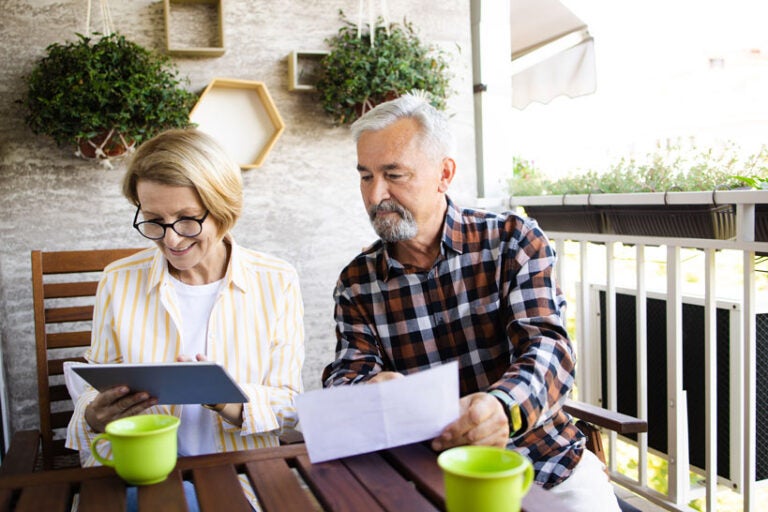Retirees seeking a sense of control and ownership of their finances may use reverse mortgage proceeds to their advantage. Because there are very few restrictions on how a borrower uses the funds, borrowers might leverage them in many ways to improve their financial position and safeguard their futures. Here are six smart ways to use reverse mortgage proceeds.
1. Ease inflation’s impact
One impact of inflation is that people on fixed incomes feel the pinch of higher prices. Rather than tapping investments to make ends meet, reverse mortgage funds offer them a possible avenue to closing budget gaps. With a reverse mortgage, eligible borrowers get access to the cash they need in the near term. This access allows them to draw from their investments minimally so their invested funds can continue growing.
Eliminating a required monthly mortgage payment is another way to give tight budgets some breathing room. Though reverse mortgage holders aren’t required to make monthly mortgage payments, they are still responsible for maintaining their properties and paying property taxes, homeowner’s insurance, and other property-related charges, like HOA dues.
Homeowners who have substantial equity in their homes and aren’t currently feeling the pinch may still be able to capitalize on high property values by opening a home equity conversion mortgage (HECM) line of credit. This line of credit has the unique feature of letting an unused portion of the homeowner’s borrowing power grow over time. Opening the line of credit while the housing market is high allows borrowers to maximize their potential borrowing power in the future.
2. See the impact of your legacy in your lifetime
Instead of leaving a legacy in their will, some borrowers use reverse proceeds to help loved ones during their lifetimes. That could mean helping children and grandchildren pay for college or taking the family on a memorable bucket list vacation.
Watching and participating in the impact of your legacy can be a rewarding experience for all parties. But before choosing to use reverse mortgage proceeds as a legacy gift, ensure you have sufficient funds for your retirement. A financial planner can advise you on what’s feasible for your situation.
3. Pay down higher-interest debts
If you carry higher-interest credit card debt or loans, reverse mortgage proceeds may offer an advantageous way of paying them down and increasing your monthly cash flow. You’ll still owe the money, but you’ll no longer be beholden to monthly credit card payments because you’ve paid the higher-interest loan with proceeds from the reverse mortgage loan.
However, it is important to note that interest will continue to accrue on the balance. And though you will no longer have monthly mortgage payments, to uphold the terms of your reverse mortgage, you will continue to have financial obligations associated with property ownership. These include paying property taxes, homeowner’s insurance, and other property-related expenses like HOA fees. The terms of the loan also require that you maintain the home.
4. Use the money for a Roth IRA conversion
Roth IRAs have the potential to be game-changers when it comes to retirement budgeting. While distributions from traditional IRAs are subject to income tax, distributions from Roth IRAs are not. However, since contributions to the traditional IRA were not taxed initially, to convert, the IRA owner must make a one-time tax payment, essentially making up for all the taxes they didn’t pay upfront. Using proceeds from a reverse mortgage to pay for the conversion means you won’t need to tap other investments or savings to cover it. If you are considering this option, be sure to speak with a CPA or other financial professional who can help you determine if this is the best course of action for you.
5. Create an emergency fund
A strong financial plan that accounts for the unexpected offers peace of mind in the present. Many reverse mortgage borrowers choose to reserve their proceeds for a rainy day—whether that means an unexpected home repair, medical expense, or just-in-case funds at the ready.
6. Build an accessory dwelling unit (ADU)
ADUs, also called casitas, granny flats, in-law apartments, and backyard cottages, offer a potential avenue for generating rental income in retirement. Borrowers looking to increase monthly cash flow with a rental may consider using their reverse mortgage proceeds to build an ADU. If you choose to build an ADU with reverse mortgage proceeds, you cannot count it as your primary residence and will still need to live in the original home.
There are many smart ways to use reverse mortgage proceeds. Before making any major decisions, speaking with a financial advisor about what’s best for your situation is always a good idea.



